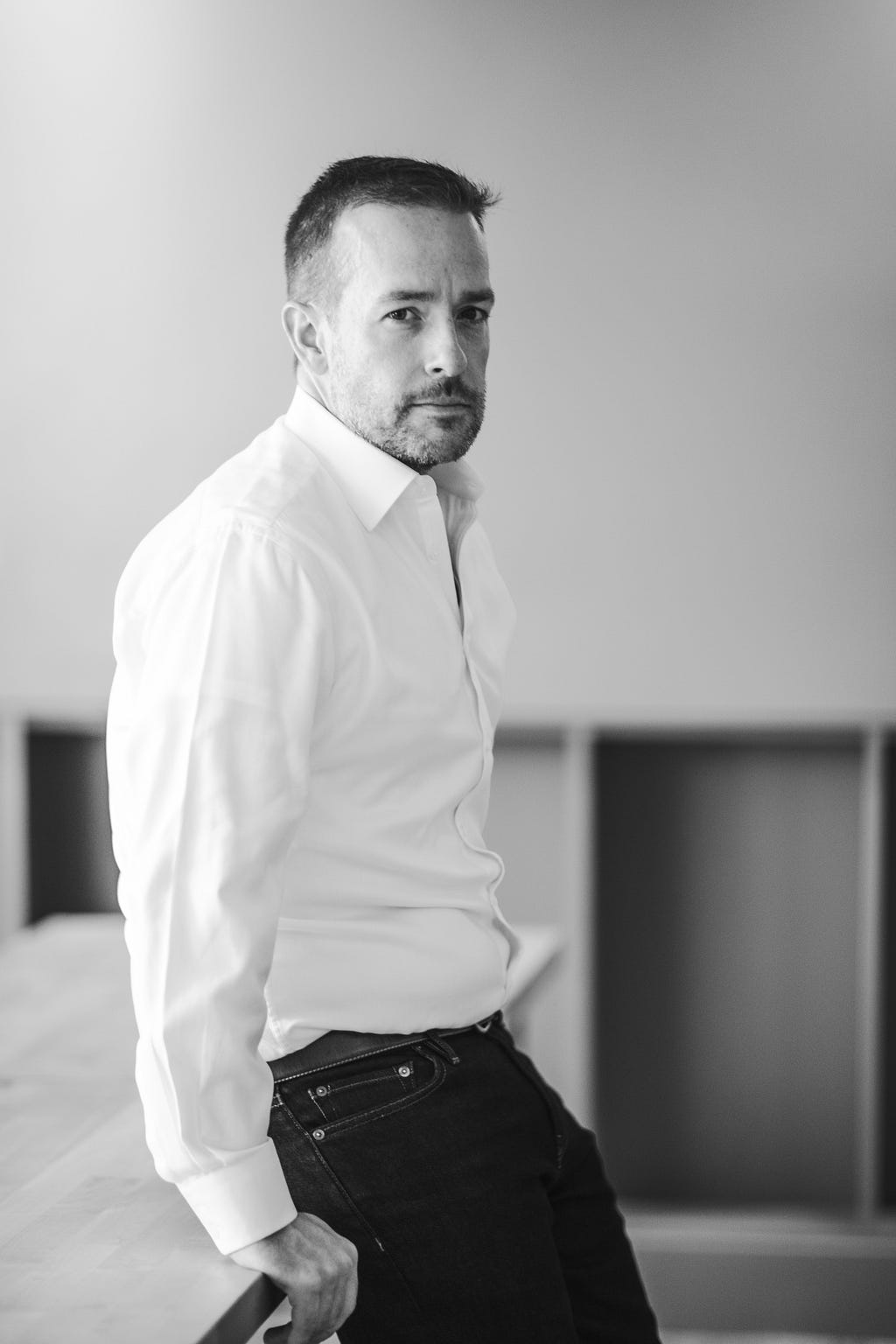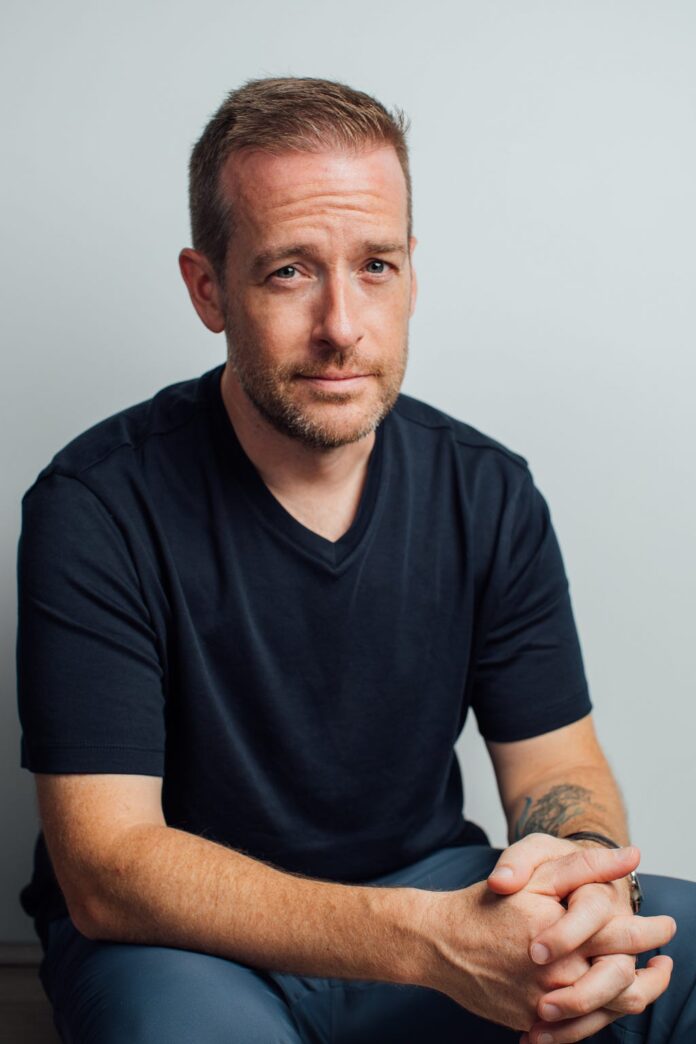An Interview With Wanda Malhotra
Duplicity is exhausting. I was leading multiple lives, and that takes too much work. Being someone to everyone is exhausting, and the work to lead an authentic and healthy life is a good driver to do the work that has to happen.
In a world where the journey towards sobriety is often challenging and deeply personal, understanding the pathways and strategies for achieving and maintaining sobriety is crucial. This series aims to provide insight, encouragement, and practical advice for those who are on the road to recovery, as well as for their loved ones and support networks. As a part of this series, I had the distinct pleasure of interviewing Jim Frawley.
Jim Frawley is an expert in change management and organizational development, and the founder of the Bellwether Method. Jim is a renowned keynote speaker, the host of Jim’s Take the podcast, a big-time reader, small-time triathlete, and full-time father and husband.
Thank you so much for joining us! Before we dive in, our readers would love to “get to know you” a bit better. Can you tell us a bit about your ‘backstory’?
I run an organization called Bellwether, which is a change management and executive development company. Previously, I worked in a number of roles in the financial industry for about 20 years.
Can you share with us the most interesting story from your career? Can you tell us what lessons or ‘takeaways’ you learned from that?
I would say the most interesting and impactful story of my career was working in Executive Communications in the Financial Industry during the 2008 crisis. It was the most challenging moment of my career that translates so well to today. Massive uncertainty, fear, and volatility (like today), and the amount of intangible things I learned from the executives that remained successful during that time informs much of the work I do today with clients.
You are a successful individual. Which three character traits do you think were most instrumental to your success? Can you please share a story or example for each?
The first trait is Perspective. We need to look at things from different angles, not just the one we have in front of us. Separating myself, as a human, from my work product, was fundamental in changing my work approach. We can create so many different things, which some people will appreciate and others not, but it is separate from our value as individuals and our identity.
The second, Philosophy. What makes us interesting and impactful are our opinions and thoughts. But most opinions are just that — beliefs. There are very few truths that exist in our world. Understanding that others will have a belief (not a truth) that may differ from ours, allows me to embrace the other perspectives that people have.
The third, Curiosity. I have learned the ability to ask really good questions without judgment. Our ability to ask questions — a request for information where you legitimately do not know the answer — changes the relationships you have and allows those around you to bring their best value and input.
Are you working on any exciting new projects now? How do you think that might help people?
Yes — I’m working on my next book, “Understanding Why,” — a philosophical guideline that is designed to encourage different levels of thinking, particularly in an executive context. I believe that the most effective response to AI and the changes we are facing revolves around our human ability to think in different ways. We often are told “what” to think — not “how” to think.
Ok, thank you for all that. Now let’s shift to the main focus of our interview. How would you advise individuals who are contemplating the journey to sobriety but might be hesitant or unsure about taking the first step? Are there key considerations or strategies that can make this initial phase more manageable?
I think the first step is recognizing that if you are thinking about it, you should probably lean in. Ask yourself the really good questions on “why.” I don’t believe we drink because we enjoy it — we drink because it allows us to distract ourselves from something that we should be facing. And, this was important for me, I realized that nobody cares if you don’t drink. There was a lot of worry about “what will this or that friend say,” — it was never an issue.
Sobriety often comes with its unique set of challenges. Can you share insights on how individuals can effectively navigate obstacles or triggers that may arise during their journey? Are there specific tools or support systems that you find particularly helpful in overcoming these challenges?
You are right — it has its unique set of challenges because everyone is different. For me, I was so lucky to have the support of my wife — who embraced it and helped me along. We communicated openly about it. I had done a lot of thinking and work leading up to it, and I also saw a therapist for a short time. All of these helped me establish my “why.”
But it also has to become part of your identity. Drinking, for me, was a big part of my identity. I then had to do the work on the person I wished to be and had to become him. On those days where you can really “use a drink” — the people around you and the identity you establish are the perfect foundation to help navigate the challenges.
Outside of the identity and support work — there are a number of organizations and people out there who can provide the support you are looking for.
Maintaining sobriety is a long-term commitment. From your experience, what are the essential factors that contribute to the sustained success of individuals on this journey? Are there lifestyle adjustments or mindset shifts that prove crucial for the ongoing pursuit of sobriety?
Your lifestyle will change because you are changing. As you change aspects of your identity, where you spend your time and how you expend energy will adjust with it. I started doing triathlons, which was a fantastic outlet. Knowing I had a big race coming up was a nice reminder as to how drinking wasn’t going to serve me. For sustained success — we have to do the identity work and then replace what drinking was for us.

Based on your research or experience, can you please share your “5 Things You Need To Begin, Navigate, & Sustain Sobriety”?
- You need to own it. This is not a “temporary” thing and not something to half ass. Everyone has tried that — it doesn’t work. If you own it, like you would own any other part of your identity, it becomes easier. You don’t need to make excuses or defend it — it’s the choice you are making based on what is best for you.
- Make it part of who you are. It becomes easier to do when it’s part of your identity. When you think about what makes you who you are — and the people around you that you most admire, you will find plenty of traits and attributes that are more core to your identity than just “drinking.”
- Time is a big one. I spent so much TIME drinking, at the bar, with friends, etc. — that I needed to find something to replace it. This is much easier than it sounds. I have found that most people don’t actually drink — there is an entire world beyond the bar that has been a phenomenal thing to explore and spend my time.
- Jean Jacques Rousseau once wrote, “How can anyone be satisfied in life if they aren’t satisfied with the one person they can never be separated from?” There is work that needs to happen on ourselves. Our internal dialogue is never-ending, and we need to revisit the conversations in our head that are leading to the decisions we are making.
- Duplicity is exhausting. I was leading multiple lives, and that takes too much work. Being someone to everyone is exhausting, and the work to lead an authentic and healthy life is a good driver to do the work that has to happen.
Community support plays a vital role in the journey to sobriety. How can individuals find and engage with supportive communities or resources that align with their specific needs and goals? Are there online platforms, local groups, or initiatives that you recommend for fostering a sense of connection and understanding during this process?
Groups abound — and they don’t come with judgment. Either we build our own community with those we trust and who want the best for us, or we can join meetings, communities and groups that are built around this challenge. I remember reading through a few communities on Reddit (IWNDWYT — which stands for I Will Not Drink With You Today) and hearing some wild stories of what people were going through. I’ve never gone to a formal “meeting” for AA or Al Anon — but they exist and are in every community. Even for niche days, there are events, like the big Sober St. Patrick’s Day event in New York. If you want to find it, you will find it — but it has to be the right one for you.
What is the best way for our readers to continue to follow your work online?
All of my info is on www.jimfrawley.com
This was very inspiring. Thank you so much for the time you spent on this. We wish you only continued success.
About the Interviewer: Wanda Malhotra is a wellness entrepreneur, lifestyle journalist, and the CEO of Crunchy Mama Box, a mission-driven platform promoting conscious living. CMB empowers individuals with educational resources and vetted products to help them make informed choices. Passionate about social causes like environmental preservation and animal welfare, Wanda writes about clean beauty, wellness, nutrition, social impact and sustainability, simplifying wellness with curated resources. Join Wanda and the Crunchy Mama Box community in embracing a healthier, more sustainable lifestyle at CrunchyMamaBox.com.
Jim Frawley Of Frawley Coaching and Consulting On How to Begin, Navigate, & Sustain Sobriety was originally published in Authority Magazine on Medium, where people are continuing the conversation by highlighting and responding to this story.


